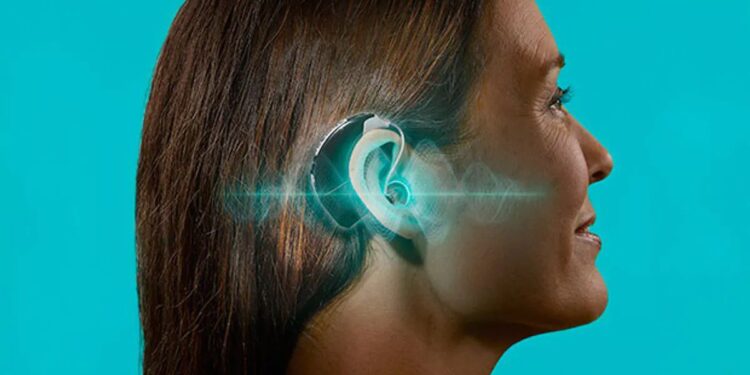In capitalism, we see consumerism as only a good thing. But sometimes, having a choice leads to only bad decisions. This is why healthcare can never fully embrace consumerism. Consumer choice makes for bad patient decisions.
We will see this play out later this year, when select hearing aids become available over the counter as soon as October 2022.
It began back in 2021, when President Joe Biden issued an executive order making hearing aids directly available. After a review by the Food and Drug Agency and a period of public commentary, the federal government formally approved the order.
As of now, it will only apply to hearing aids for those with mild to moderate hearing impairment, though that is a sizeable proportion of the hearing impaired population.
The goal is to lower the average price of hearing aids by introducing market principles of consumerism. The hope is consumer electronic companies will get into this space, which is currently dominated by a select number of hearing aid manufacturers: including ReSound, Sonova, and William Demant.
Recent history suggests otherwise. A few companies have already tried offering over the counter hearing aids, and they were unsuccessful. This includes premium audio equipment manufacturer, Bose, which received FDA clearance in 2018 for the first over the counter hearing aid. But in early 2022, the company stopped making hearing aids and instead struck a partnership with South Africa-based Lexie Hearing to sell a consumer hearing aid, “powered by Bose.”
It would seem like a curious time to create a partnership when the market has finally opened to direct sales to patients. Most predict the hearing aid market will behave in a traditionally consumer oriented way that we attribute to other consumer electronic goods, which means people will presumably buy more hearing aids than before.
Market dynamics will play out, no doubt. But the type of consumerism that will manifest may prove harmful to the patient.
Consider the smart phone: the greatest invention in past decades. It has become both a necessary tool and a status symbol. It makes for an odd combination that can be best seen in the mix of consumers who buy it.
For the minimum wage worker, these phones are quite expensive. For the well off, well, it is just another expense. But disparity matters in this context, because the draw for the smart phone is less dependent on its price, and more on the willingness to buy, more specifically, the drive for status. So people of all socioeconomic class buy expensive smart phones, regardless of how much or how little it accounts for their income.
The fervor for status negates any decision making based on the economic utility gleaned through the phone’s value. People would rather purchase a phone that gives them status instead of a phone based on the utility it provides.
We must heed this important lesson when we promote healthcare consumerism to address economic disparity in healthcare. For patients who purchase a phone, the appeal for status creates price inelasticity, which means the market is not defined by pricing pressure.
Hearing aids may very well follow this model. The first indicator that hearing aids will be a status oriented, price inelastic market will be the number of successful distribution channels that emerge. Bose’s partnership with Lexie Hearing suggests we may have fewer distribution channels than anticipated, which mirrors the smart phone market. It suggests price will have little effect on hearing aid sales.
Distribution channels are often overlooked because they do not have an easily observable influence on consumer markets like status, but they distinguish healthcare markets.
We think the push for consumerism will flood the market with many distribution channels, but only a few will win out. This is because patients are not consumers. And for patients, price is not a driver of purchasing behavior.
Patients will not purchase hearing aids at Best Buy like they would a computer mouse. They will purchase them through select distribution channels that are recommended by a trusted medical provider or a close acquaintance. The few distribution channels that earn a reputation as the trusted source for quality hearing aids will win out. The rest will close shop soon enough.
Status and trust are the dynamics that influence healthcare consumerism. It is no different from explaining why patients go to more expensive hospitals affiliated with large academic medical centers instead of local community hospitals.
When hearing aids become available, we will see similar patterns of behavior. Many new entrants will come into the market, hoping to capture some market share through lower prices and discounts. They will lose. The players that will win are the ones who sell premium hearing aids and invest heavily in building trust and status.
Once hearing aids become a status symbol, we will see the worst of healthcare consumerism. Soon we will see the moral hazards. And we suspect we will see a rise in diagnoses for mild to moderate hearing impairment – not because hearing aids are more accessible or affordable, but because they are expensive and trendy.
This is healthcare consumerism. We think we will see the best of market dynamics. Rather, we will see the worst of patient behavior.
Remember, it is impossible to align the many individual patient incentives through any one policy. Patients do not respond to the intended effects of a policy, they respond to the moral hazards within it.















